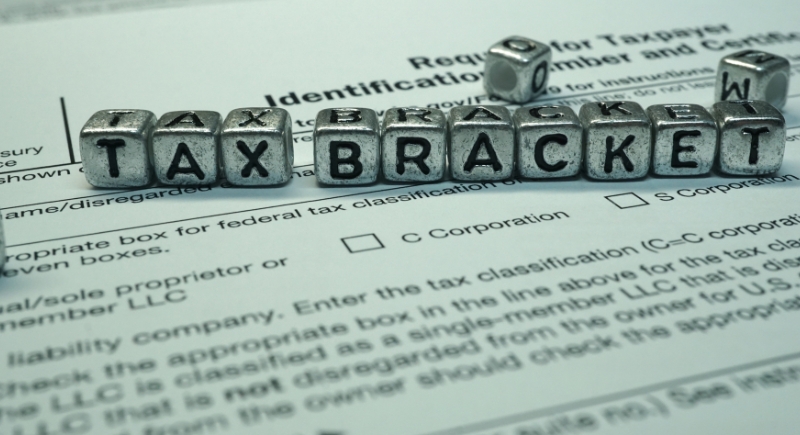15 Things Gen X Can’t Afford to Get Wrong About Social Security
Social Security might feel like something to worry about later, but for Gen X, later is coming up fast. The decisions you make now in your 40s and 50s could shape how much you receive every month once those checks start coming in. But it’s not just about when to file. It’s also about what you overlook, misunderstand, or assume. Here’s what to avoid if you want to get it right.
Making an Early Claim

Credit: Canva
It’s tempting to grab Social Security in your 60s, but that early move can cost you for life. Filing before full retirement age slices your monthly benefit by as much as 30% and permanently. Consider waiting for a larger check, unless you have health or financial emergencies. It may even be up thousands more per year once you hit your later decades.
Working While Claiming

Credit: studioroman
Claiming early is one thing, but doing so while thinking about part-time work is not advised. What you earn there could shrink your Social Security checks. If you earn over $23,400 in 2025, Social Security takes $1 back for every $2 earned above that line. Many Gen Xers plan to ease into retirement with side gigs, but forget how easily those earnings trigger withholding if the timing isn’t right.
Using Social Security as Your Whole Plan

Credit: Getty Images
You can’t treat Social Security like a retirement plan. It’s not. Benefits generally replace just 30 to 40 percent of your income. You’ll still need to draw from savings, IRAs, or 401(k)s to maintain your lifestyle. Relying on it alone could leave you coming up short in your 70s and beyond.
Not Verifying Your Earnings

Credit: Getty Images
Social Security calculates your benefits based on your 35 highest-earning years. But the system only knows what you’ve reported, and mistakes happen. A missing year or incorrect figure could mean smaller checks for decades. Make it a habit to log into your SSA account yearly and review your earnings history. Fixing issues early is easier than after retirement. Plus, it can lead to a bigger retirement cushion.
Mishandling Self-Employment Income

Credit: Getty Images
If you’re self-employed, those clever tax deductions might be costing you more than you think. Social Security benefits are tied to your taxable income, not your actual earnings. Writing off too much may shrink your reported wages and reduce future benefits. Worse, if you don’t report within three years, the income might not count towards your benefits at all.
Forgetting What Marriage (or Divorce) Can Unlock

Credit: Getty Images
Spousal and survivor benefits often offer more than you expect. If you were married for at least 10 years and haven’t remarried, you may qualify to claim based on your ex’s work history. Widows and widowers can also collect full benefits from a deceased spouse. These options are often overlooked but can make a meaningful difference, especially for lower earners or stay-at-home parents.
Panicking Over Doom Headlines

Credit: Getty Images
You’ve seen the scary forecasts: Social Security is running out. While the trust fund faces shortfalls, the program won’t vanish. Experts speculate that future payouts may be reduced by 20–30 percent. Filing early out of fear could cost more than waiting. Base your decisions on verifiable policy updates.
Getting Blindsided by Taxes Later

Credit: Canva
Many individuals are surprised to learn that their Social Security income can be taxed. If your combined income exceeds certain thresholds, up to 85% of your benefit could be taxable. State taxes might apply, too. Strategically planning withdrawals from IRAs and Roth accounts helps soften the blow. The IRS won’t remind you, but they will collect.
Trusting Math More Than Life

Credit: 89Stocker
Some future retirees base their claiming date on break-even analysis—the point when delayed benefits surpass early ones in total value. But real life doesn’t always follow those neat equations. A well-rounded strategy factors in possible health changes, inflation, and market returns because they can shift the landscape significantly.
Blowing Up Your Tax Bracket with a Roth Conversion

Credit: Getty Images
Converting traditional IRA savings to a Roth can be smart, but timing is everything. Plan them before benefits begin and spread them out over several years. If you’ve started collecting Social Security, these conversions could push your income high enough to trigger benefit taxes or Medicare surcharges.
Skipping the Health Insurance Gap Puzzle

Credit: Canva
Medicare doesn’t kick in until 65, so consider that when retiring. Paying out-of-pocket for health insurance is a fast savings drainer. Marketplace premiums, deductibles, and coverage limits vary. Without a clear plan, even two years of private insurance could derail an otherwise solid retirement plan.
Letting Catch-Up Contributions Slide

Credit: zimmytws’s Images
Once you hit 50, the IRS lets you stash more into your 401(k) and IRA. It’s easy to miss out by just sticking to regular limits. In 2025, catch-up contributions can add $7,500 to a 401(k)—up to $11,250 from age 60-63. Skipping this opportunity means losing valuable compounding power at the moment your income is usually peaking.
Ignoring the Taxable Cap on High Earners

Credit: Getty Images
There’s a $176,100 ceiling on Social Security payroll tax in 2025. Earnings beyond that threshold aren’t taxed, and consequently, those income amounts don’t boost future benefits. This capping of contributions and credits is a common oversight. It needs to be taken into account so that if you’re a high earner, you can prioritize other tax-advantaged investments or deferred compensation.
Overlooking How Caregiver Roles Affect Your Record

Credit: Canva
Spending years caring for aging parents or children can lead to lower lifetime earnings and, ultimately, reduced Social Security benefits. These caregiving years frequently end up as zero if included in your 35 highest-earning years. But your time at home matters more than you might realize. Look into caregiver credits or temporary benefits available during those periods.
Failing to Plan Around the Earnings Test Recalculation

Credit: Getty Images
If you claim early and keep working, Social Security may withhold benefits under the earnings test. But what most people miss is that those withheld benefits aren’t lost forever. They’re gradually recalculated once you hit full retirement age, often increasing your future monthly payments.